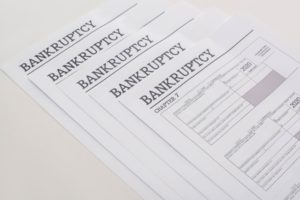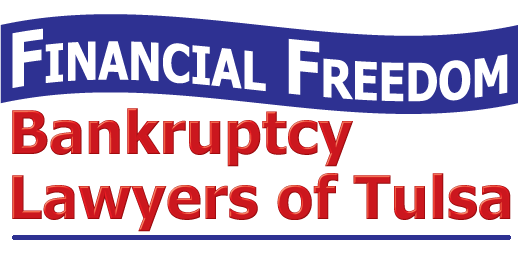Oklahoma Bankruptcy HelpChapter 7 Bankruptcy and Secured Debt in Oklahoma
Drowning in Debt? Financial Freedom of Tulsa Is Here For You!
You probably know the harsh reality of owning a nice home in a nice neighborhood in this day and age. Those nice things come at an expensive price. Many homeowners take out loans to cover their expenses. Bankruptcy lawyers in Oklahoma can help when your debt grows to a point you can no longer manger.
If you struggle to pay your debts, options such as bankruptcy may provide you with a way out. Even when you carefully monitor your debt and interest rates, things may get out of hand. Debt collectors will seek everyone who has not had a problem with their payments. Under these circumstances, speaking with an attorney to see if you are eligible for Chapter 7 Bankruptcy is a smart decision.
Why Should You Choose Chapter 7 Bankruptcy and Secured Debt?
Rules for Secured Debt in an Oklahoma Chapter 7 Bankruptcy can appear complex and confusing at first glance. To best understand how bankruptcy courts handle secured debt in a Chapter 7 bankruptcy, let’s focus on one at a time.
In a Chapter 7 Bankruptcy where a person is no longer able to pay their debts they liquidate their assets to pay creditors. Liquidating assets means using your emptying bank accounts and selling property to repay your debt. Depending on how much personal property you own, a court trustee will determine the value of personal items to be liquidated. Fortunatly, state and federal bankruptcy laws carve out generous exemptions that let debtors keep much of their personal property in a bankruptcy.
Secured debt is the easiest debt to deal with in a bankruptcy. A secure debt refers to returnable assets. For example, houses, cars, and RVs can all be classified as secured debt. Chapter 7 bankruptcy allows people to discharge some secured debts, but for the most part expect to return items that are collateral for a secured debt. There are three options for secured debt: pay the debt entirely, make payments on the asset or give back the asset.
There are some things you can keep during a bankruptcy. An example of this is your primary personal vehicle or your primary residence. These kinds of property are eligible for exemption. Exempt properties are things you continue to own during a bankruptcy, meaning that trustees will ignore these personal items when evaluating your property value.
Discharging unsecured debt is far more nuanced than secure debt. Unsecured debt in its simplest forms is a non-returnable debt. Unsecured debts are generally consumer debts – typically credit card debt or any other type of credit where you don’t have property secured by contract for collateral. But just because a debt is not secured by collateral does not mean you can discharge the debt in a Chapter 7 bankruptcy.
For example, student loans, child support, and tax debt are also unsecured debt, but therefore their eligibility for discharge during a Chapter 7 bankruptcy may vary. Student loans can be discharged only if a debtor can prove repayment would cause “undue hardship.” Child support debts cannot be discharged. Income tax debts might be dischargeable if they are more than three years past due, but penalties are not. A lien filed against your property for a tax debt can still be collected when you sell the property.
For a more precise answer to whether your Chapter 7 bankruptcy will discharge your particular secured debts, call a Tulsa Bankruptcy attorney today.
Low-cost Consultations With Chapter 7 Bankruptcy Debt Attorney
Are you running out of options to pay your debt? Don’t let the burden of debt ruin your life. Speak to someone about debt relief today. Call an Oklahoma Chapter 7 bankruptcy attorney for more information on how to get your financial life back in order.
Feel free to contact Financial Freedom Bankruptcy Lawyers of Oklahoma today at (918) 786-9600 to set up your low-cost consultation today. We also offer consultations via the request quest form on this page.




